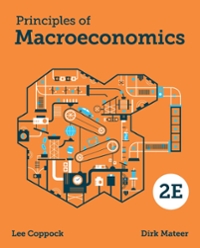Question
Agriculture, food and the fight against climate change Series 1: Farmers struggle to break into the booming carbon credit market | Reuters Series 2: Climate
Agriculture, food and the fight against climate change
Series 1: Farmers struggle to break into the booming carbon credit market | Reuters Series 2: Climate change: New Zealand's plan to tax cow and sheep burps - BBC News New Zealand offers taxing cow burps, angering farmers (nypost.com) Series 3: Opinion: The Case for Putting Climate Labels on Meat - Modern Farmer You'll see more carbon labels at the grocery store next year. Here's what they mean. (macleans.ca) More and more products are adding carbon labels. What do they really mean? (chatelaine.com)
Un lgislateur nord-amricain travaillant au sein d'une commission agricole a rcemment lu ces trois sries d'articles. Il s'tonne quel point l'agriculture est prsente tantt comme un problme dans la crise climatique, tantt comme une solution cette mme crise. Les trois mcanismes voqus dans les articles ci-dessus (march du crdit carbone dans l'agriculture, taxe sur les productions sensibles, label climat sur les produits alimentaires de dtail) ont retenu son attention. Ils semblent tous intressants mais ont chacun des limites et des compromis. Il fait appel vos conseils et vous demande de rdiger une note conomique sur l'une de ces trois options. Il s'intresse aux arguments conomiques du dbat, en particulier ce que la thorie conomique nous apprend sur les enjeux et le potentiel de tels mcanismes. Il veut une analyse nuance et originale.
Whatever your choice, the main question to answer is: Is the mechanism presented likely to provide adequate incentives to initiate a change in the behavior of economic agents (producers, consumers, intermediaries, etc.) favorable to the reduction of emissions? greenhouse gases? Yes or no (even if it means qualifying later), you may not agree with the terms of the question. In addition, you are free to conduct a general analysis (climate change being a global issue), or to focus on a particular production in a particular country, state or province. You can if you want to pay attention to the legal aspects, but your analysis must remain mainly an economic analysis.
Dans tous les cas, choisissez un angle d'attaque, expliquez votre rponse et justifiez l'aide de la thorie conomique et des concepts vus en cours (vous pouvez vous appuyer sur le matriel qui se trouve dans les articles, ainsi que sur du matriel extrieur aux items). Compte tenu de la nature encore mergente de ces mcanismes, vous pouvez galement vous inspirer des enseignements thoriques et empiriques tirs de mcanismes similaires dans le pass.
Advice : o Start by identifying the concepts to use o Think about the incentives of the actors of the sector (but also about the disincentives as well as the possible perverse effects) o Think like an economist (at the margin, scarcity, opportunity cost, market and efficiency, externalities, etc.) o Think about biases o Think about new concepts you learned in class o If available, leverage strong empirical results from experimental economics (e.g., willingness to pay, etc.) or other proven methods o Think about the polarized and complex nature of these issues
Cite all references used
Some examples of avenues to expand your economic analysis on a theoretical level: Coase theorem and carbon market, externality, private cost and social cost, information economics, information asymmetry and full disclosure of information, theories of the consumer, etc.
Step by Step Solution
There are 3 Steps involved in it
Step: 1

Get Instant Access to Expert-Tailored Solutions
See step-by-step solutions with expert insights and AI powered tools for academic success
Step: 2

Step: 3

Ace Your Homework with AI
Get the answers you need in no time with our AI-driven, step-by-step assistance
Get Started


